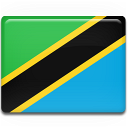
2010 Tanzania
 Despite its obligations under international law, Tanzania is struggling to cope with an urban housing crisis that has resulted in its slum population exploding to an estimated 85% of the nation’s total urban population. Sadly, women are rapidly becoming the face of poverty in this growing urban landscape. Their inability to escape discriminatory cultural and legal norms reportedly contributes to their increased migration to urban areas, and little work has been done to investigate the disparate impact slum living has on these women.
Despite its obligations under international law, Tanzania is struggling to cope with an urban housing crisis that has resulted in its slum population exploding to an estimated 85% of the nation’s total urban population. Sadly, women are rapidly becoming the face of poverty in this growing urban landscape. Their inability to escape discriminatory cultural and legal norms reportedly contributes to their increased migration to urban areas, and little work has been done to investigate the disparate impact slum living has on these women.
For two weeks in May 2010, Fordham Law School Professors Katherine Hughes, James Kainen, Rachel Vorspan, and Elisabeth Wickeri led a delegation including seven law students on an overseas project to investigate and document the difficulties women face in securing adequate housing in urban areas, focusing on the factors that push women to move to urban areas and the unique challenges women face during their time in urban slums.
Professors Hughes, Kainen, Vorspan, and Wickeri were joined by seven Fordham Law School students. The students participating in the documentation project are Crowley Scholars Jacqueline Bevilaqua, Mari Byrne, Cristine Delaney, Maria-Elena Kolovos, Jesse Melman, Matthew Putorti, Amy Rossnagel, and Marni von Wilpert. The delegation was happy to collaborate with a wide range of non-governmental organizations, most especially the Dar es Salaam–based Women Advancement Trust–Human Settlements and the Centre for Community Initiatives.
In an effort to gain a deeper understanding of these pressing issues, the delegation conducted wide-ranging interviews with members of the government, the judiciary, academics, lawyers, non-governmental and inter-governmental organizations, community organizers, men and women living in informal settlements, and local leaders. It is hoped that the project will inform national and international approaches to urban slum upgrading, encouraging various institutions to incorporate both human rights and gendered perspectives into their programs.
After a semester spent studying Tanzanian culture, law, and history and with a firm grounding in international human rights law, the delegation conducted two weeks of fieldwork. The Leitner Center is now producing a report of its findings to be distributed in Tanzania and internationally.
The Leitner Center for International Law and Justice at Fordham Law School promotes teaching, scholarship, and advocacy in the field of public international law. The Center sponsors programs designed to prepare law students for work as human rights lawyers and seeks to have a real and measurable impact on the level of respect for international human rights standards.
Read “A Home in the City: Women’s Struggle to Secure Adequate Housing in Urban Tanzania” (PDF)
To read more about the current human rights situation in Tanzania, please consult:
PRESS COVERAGE ABOUT THE CROWLEY PROGRAM IN TANZANIA:
Crowley Project, Tanzania – Radio Interview, WFUV Radio, January 31, 2012
Battered Women Find Safety in House of Peace, Tanzania Daily News, July 8, 2010 (PDF)
Urban Slum Explosion Traced to Migration, Tanzania Daily News, June 6, 2010 (PDF)





